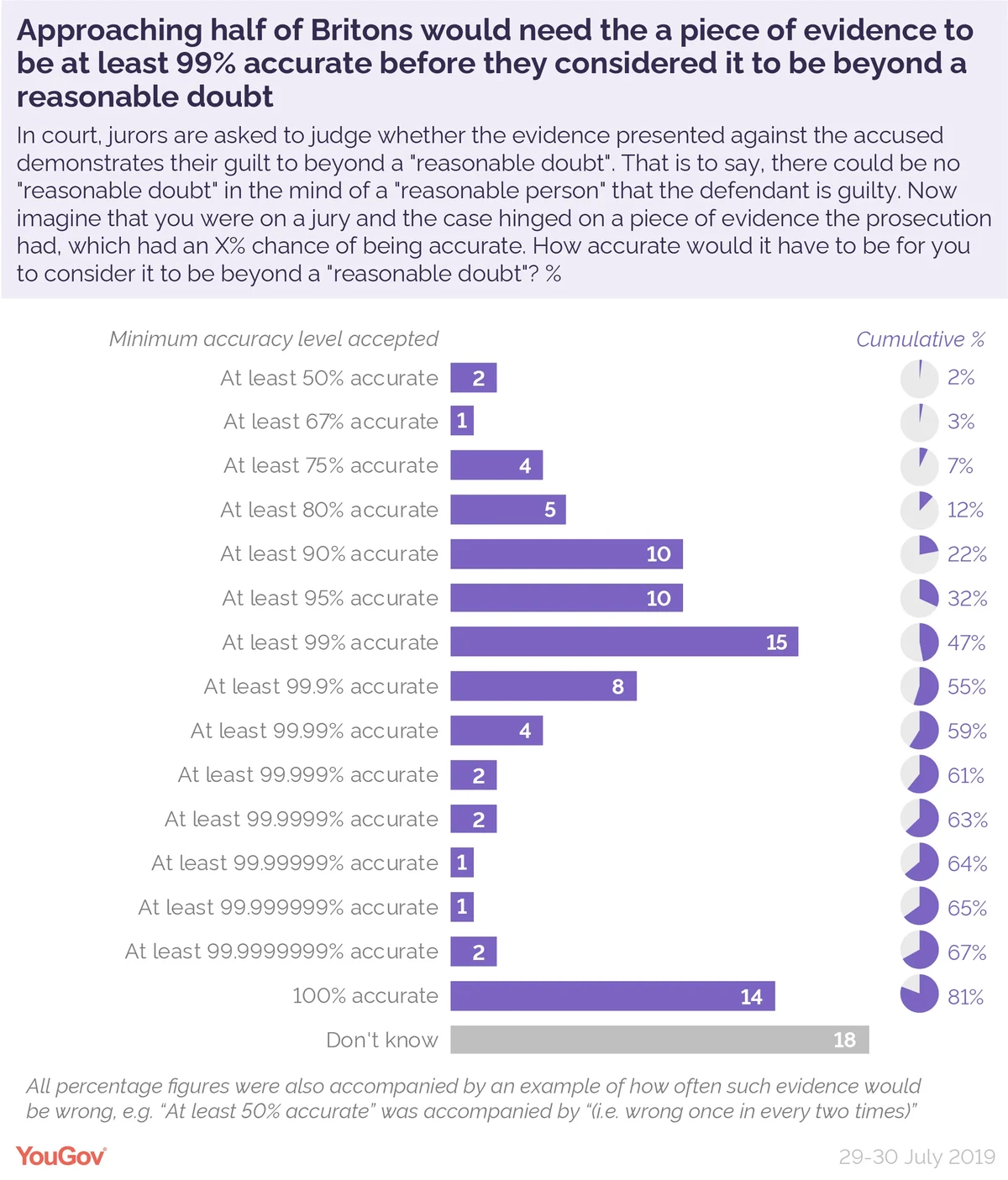Jurors are often asked to make verdicts in trials based on whether “a reasonable doubt” of guilt exists. But where do Britons put this level of doubt? Is 80% certainty enough? 90%?
It may seem tame given the current tumultuous state of British politics, but among the bigger scandals of the Coalition era were the 2013 trials of Chris Huhne and his partner Vicky Pryce for perverting the court of justice.
News emerged that jurors at Pryce’s trial sent the judge a list of 10 questions, including one where a juror asked what a “reasonable doubt” is.
The question does, itself, raise another question: at what point do Britons believe the likelihood of something has moved beyond a reasonable doubt: 90%, 95%, 99%?
To test this, having defined for participants what a “reasonable doubt” means*, we asked them to imagine they were on a jury and the case they were hearing hinged on a piece of evidence that had a certain percentage chance of being accurate. How accurate would that evidence have to be for Britons to consider it to be beyond a reasonable doubt?
The most common answer was given by the 15% of Britons who said they would need such a piece of evidence to be at least 99% accurate.
This was followed in popularity by the 14% of people who said “nothing less than 100% would do”. Accuracy ratings of at least 90% and 95% were also selected by 10% of people apiece. Only 12% of Britons set the bar below 90%.
Overall 18% of Britons said they didn’t know how accurate they would need something to be to consider it beyond reasonable doubt. Women, young people and working class people tended to be more likely to give a “don’t know” response.
Looking at cumulative results shows that one third of Britons (32%) would accept a piece of evidence that was at least 95% accurate. This rises to approaching half of Britons (47%) who would accept a piece of evidence that was at least 99% accurate as being beyond a reasonable doubt, rising again to 55% if the accuracy of the evidence was at least 99.9%.
*our definition being “In court, jurors are asked to judge whether the evidence presented against the accused demonstrates their guilt to beyond a "reasonable doubt". That is to say, there could be no "reasonable doubt" in the mind of a "reasonable person" that the defendant is guilty.”
Photo: Getty








